


 Many observers have suggested that increasing fragmentation of the popular vote could lead to electoral outcomes that break with UK electoral history, but what is the probability that the 2015 election really will be exceptional? In this post, the team from electionforecast.co.uk discuss four electoral records that might be broken in May.
Many observers have suggested that increasing fragmentation of the popular vote could lead to electoral outcomes that break with UK electoral history, but what is the probability that the 2015 election really will be exceptional? In this post, the team from electionforecast.co.uk discuss four electoral records that might be broken in May.
A key benefit of our general election forecasting model is that it allows us to calculate probabilities for various events of interest. One way of understanding how our model works is to imagine that we re-run the forthcoming election many, many times, and each time we record the result. There is considerable variation in the results we record (reflecting our uncertainty in specific election outcomes), but we can use the distribution of these simulated results to work out how probable each outcome is. For example, if the Labour Party wins most seats in 50% of our simulated elections, then we can say there is a 50% probability that Labour will be the plurality party after the election in May.
The probability of many of the most obvious (and important) outcomes of interest are updated daily on our website. This includes the probability of a Labour or Conservative majority (currently 9% and 2% respectively), the probability of a hung parliament (89%), and the probability of victory for each party in each seat (for example, UKIP currently have a 35% chance of winning in Thurrock). However, we are also able to use the model to calculate the probability that various electoral records will be broken in May. The records we consider in this post refer to general election results from 1945 to 2010.
The graphs below present the relevant quantities of interest calculated from thousands of simulated elections. The higher the bar, the more likely is a particular result. To make things clearer, results that beat a previous record are coloured red, and non-record-breaking results are coloured gray. So, more red in a plot suggests that more of our simulated elections were record-breaking, and thus that there is a greater probability that a given record will be broken in the forthcoming election.
1) Will the Labour and Conservatives share of the popular vote reach a record low?
Much has been made of the potential impact of the increasing fragmentation of the UK electoral system, and the effect that this will have on the two largest parties. The combined vote share of the Conservatives and Labour has declined gradually over the past fifty years, and the rise of UKIP, and the strengthening of the SNP and the Greens could mean a continuation of this trend in 2015. In 71% of the elections we simulate, the top two parties receive a smaller fraction of the popular vote than in any election since 1945. In other words, our model implies that there is an 71% probability that the combined Labour and Conservative vote share will reach a new record low.
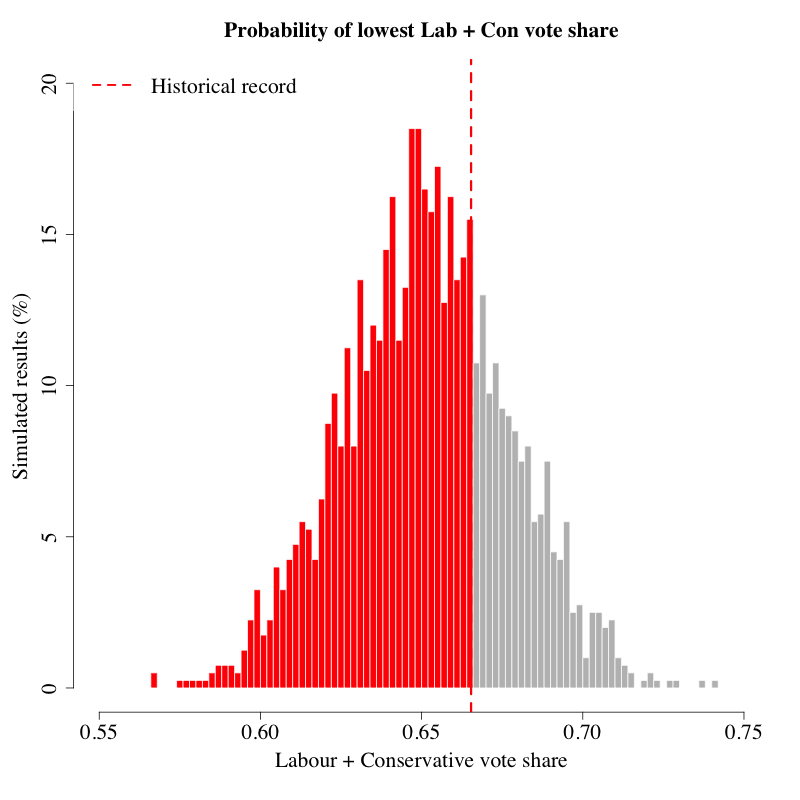 2) Will the Labour, Conservative, and Liberal democrat share of the popular vote reach a record low?
2) Will the Labour, Conservative, and Liberal democrat share of the popular vote reach a record low?
Our model is even more confident that the combined vote share of the top three parties will be lower than ever before. The low polling figures of the Liberal Democrats (9.9% of the vote in our latest “Nowcast”), in addition to the likely decline of the Labour and Conservative share of the vote, means that we are almost certain that a new record will be set here. Our model calculates the probability that this record will fall in May to be 100%. This means that the combined vote share of these three parties in our simulated elections never exceeded the historic low of 90% (a record set in the 2010 election).
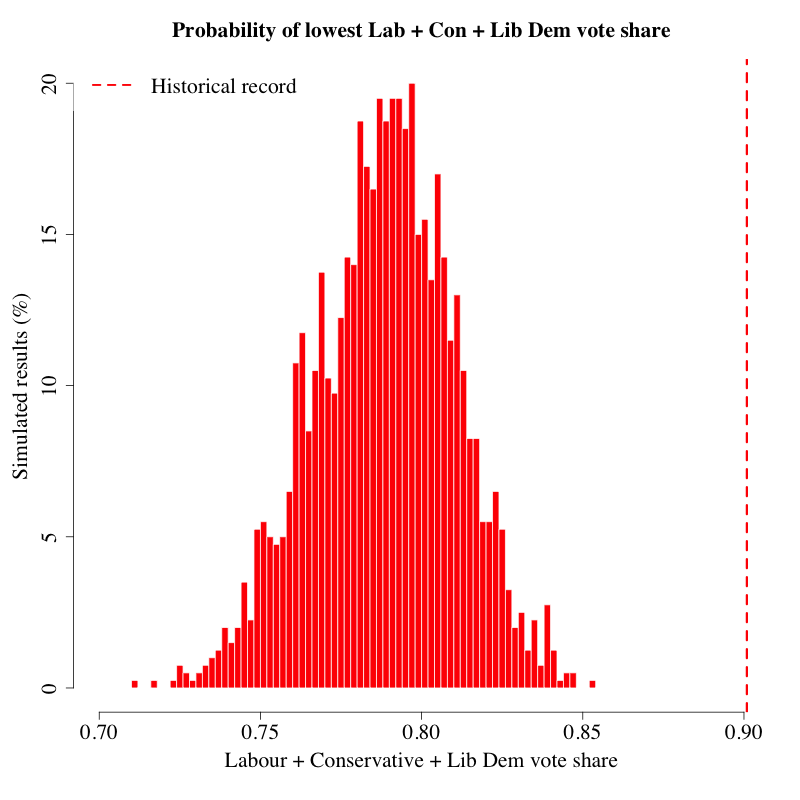 3) Will Labour’s Scottish vote share reach a record low?
3) Will Labour’s Scottish vote share reach a record low?
A key question for the election outcome is whether Labour will lose their traditional support base in Scotland. Our model suggests that it is very likely that the Labour Party will receive its lowest ever share of the Scottish vote, which previously was the 35.1% they won in the 1983 election. We estimate that the probability of this happening is 80%.
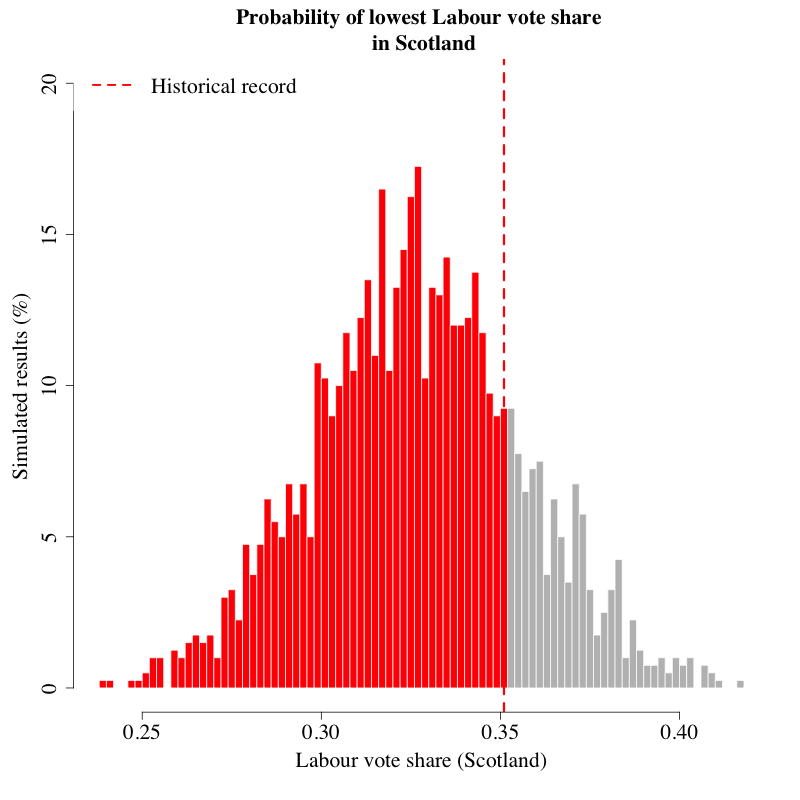 4) Will a constituency be decided by a record-low vote share?
4) Will a constituency be decided by a record-low vote share?
Under the UK’s first-past-the-post system, the candidate in each constituency winning the most votes gets elected. A potential implication of growing vote fragmentation in the UK is that, in some seats, fewer votes will be needed to win than ever before. The record lowest winning vote share in any constituency since 1945 was in Inverness, Nairn and Lochaber in 1992 where the Conservatives won* Liberal Democrats held the seat with only 26% of the vote.
Our model suggests that it is quite possible (25% probability) that this record will also fall in 2015. In our simulated election, there are four constituencies that are frequently decided by a record-low vote share: three in Wales (Aberconwy, Camarthen East and Dinefwr, and Dwyfor Meirionnydd) and one in Scotland (Edinburgh West).
As things stand, it is probable that the 2015 election may break a number of electoral records. We have outlined only a few of the records that may be re-made in May (a more complete list can be found here), but even this short list suggests that the election is likely to represent a change from the past. We will continue to provide probabilities of the most important election outcomes at electionforecast.co.uk.
*Many thanks to Stewart Jackson MP (@SJacksonMP) for pointing out the error here.
 Jack Blumenau is a PhD candidate in Government at the London School of Economics.
Jack Blumenau is a PhD candidate in Government at the London School of Economics.
 Chris Hanretty is a Reader in Politics at the University of East Anglia.
Chris Hanretty is a Reader in Politics at the University of East Anglia.
 Benjamin Lauderdale is an Associate Professor in Methodology at the London School of Economics.
Benjamin Lauderdale is an Associate Professor in Methodology at the London School of Economics.
 Nick Vivyan is a Lecturer in Quantitative Social Research at the Durham University.
Nick Vivyan is a Lecturer in Quantitative Social Research at the Durham University.


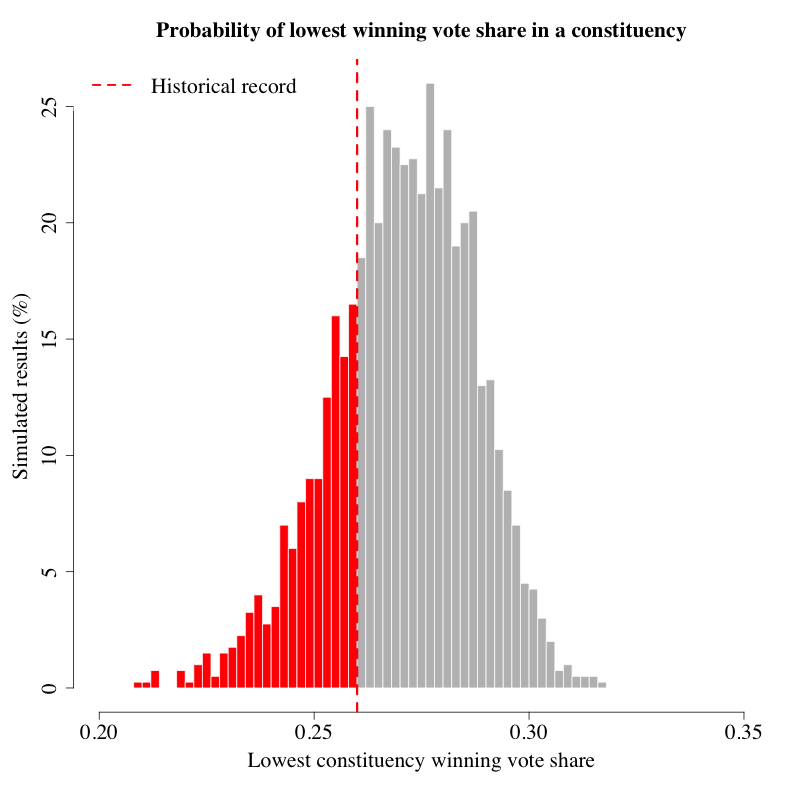



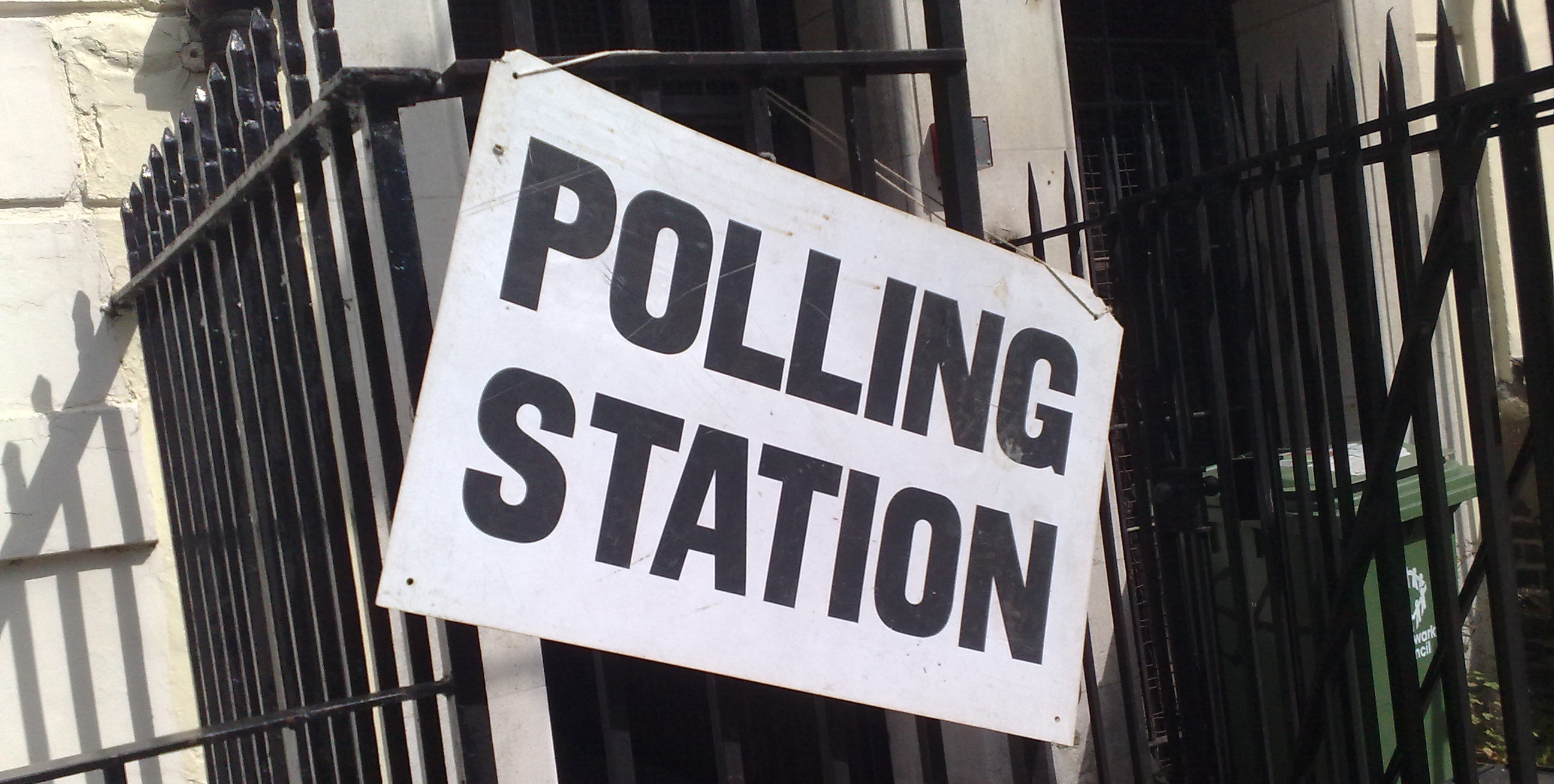

I wonder when we will see the first 5-way marginal seat
The Conservatives didn’t win Inverness, Nairn & Lochaber in 1992: the LibDems did.
Actually, I’ve got that wrong; it must be much more likely than that.
Great stuff!
What does the model say about the chances of the following happening?
1. Lab & Cons winning an equal number of seats
2. An exact tie in any constituency. I’ve been puzzling over this one; it’s never happened, which seems a bit of a fluke given the number of very small majorities recorded. I’d guess it must be somewhere between 1000/1 and 10,000/1 to happen in any one of the 650 seats in a general election.